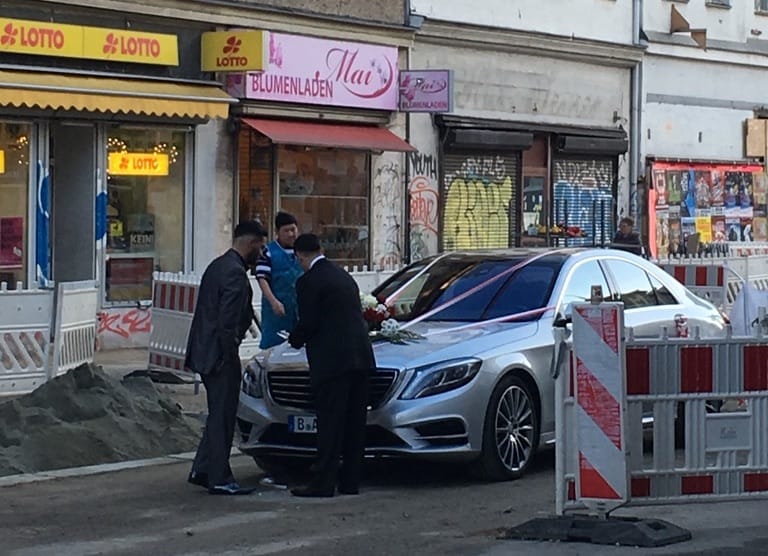Turning it around - could you make the use of Berlin's streets better for everyone?

That the removal of just one car parking space can in the future be enough to stop a bicycle infrastructure project in Berlin has of course led to justifiable howls of critique. A car friendly transport policy is what you get from a city administration run by the CDU (and their Transport Senator Manja Schreiner) backed by the SPD.
But I think Berliner Zeitung's Peter Neumann is spot on in this piece. "At the end of this election period, motorists will be at best as happy and satisfied as they are now - namely not at all" Neumann writes. And to extend his thought a little further, those who could have become a little happier - cyclists and pedestrians - are also going to be as frustrated as now.
The annoying thing as a Berlin resident is how mutually disappointing all of this is.
If I cycle from where I live in Neukölln to somewhere in Mitte - something I do pretty often - the chances some car driver is going to put me in a position of danger are close to certain in that 6km trip. It might be something beyond the car driver's control - a badly designed junction or ill planned bike lanes. But more likely it is erratic or aggressive vehicle driving behaviour, at least part motivated by how grim the driving experience in Berlin is. The cycles of bad behaviour repeat and strengthen each other.
While bicycle is my main transportation means, I do drive from time to time. And that is grim as well.
The junctions on Gneisenaustraße that are awful for cyclists have awful lines of sight for vehicle drivers too. I'm forever annoyed by illegally and incorrectly parked cars as a cyclist, but at least I can still find a space to park my bike. Even finding somewhere to park a vehicle in Berlin is an exercise in frustration.
Is there some way out of this conundrum I wonder?
The crux it seems to me is that there has to be less car traffic or, at the very least, fewer cars hanging around everywhere taking up all the space. But - and here comes the crucial bit - for those people that need to use a car, the experience could perhaps actually also be less stressful?
Let's start with parking. Parking violations are so common and systematic, and so seldom controlled, it currently feels hopeless. I sometimes report violations in my neighbourhood to the Ordnungsamt, but it takes hours and hours for anyone to pass by. And if anyone is ever sanctioned for a violation, the fines are so damned low so as to be meaningless - I was hit with just €20 for parking a car I borrowed on a curb. Almost worth taking the hit so as to actually find a place to park. Do what Amsterdam does - with a digital parking enforcement system - and get it in check. And hike up the fines. If a car is illegally parked, tow it away immediately and put it in a compound somewhere on the edge of the city rather than just depositing it around the corner from where the offence took place.
Those that need the car parking space must be given more solid priority, namely the people who live or work in a neighbourhood. You do not need to take the car to go to a restaurant or go shopping in local shops - indeed numerous studies have shown that those arriving on foot, by bike or on public transport generally spend more. Prioritise the people who need the space - and that will mean higher costs to park in an area for non-residents.
That also means being much tougher on cars left for months on end on Berlin's streets - a problem that has been ongoing for years. Take a walk along pretty much any Berlin street and you see these cars with grime, leaves and pollen mounting up on the windscreens, tires starting to go flat, and with weeds growing out from underneath. We have limited parking space, so make sure it is used by people who actually use and move their vehicles. And sure, this might make life complicated for people with vehicles used only from time to time, like camper wagons, trailers and caravans - but then find zones for those where there is not pressure on parking for residents.
Would all that work? I don't see any strong and reasonable arguments against trying to do these things. It would probably not be enough on its own to improve things for all road users in Berlin, to get things into some sort of virtuous circle rather than a vicious one. But surely it'd all be worth a try?